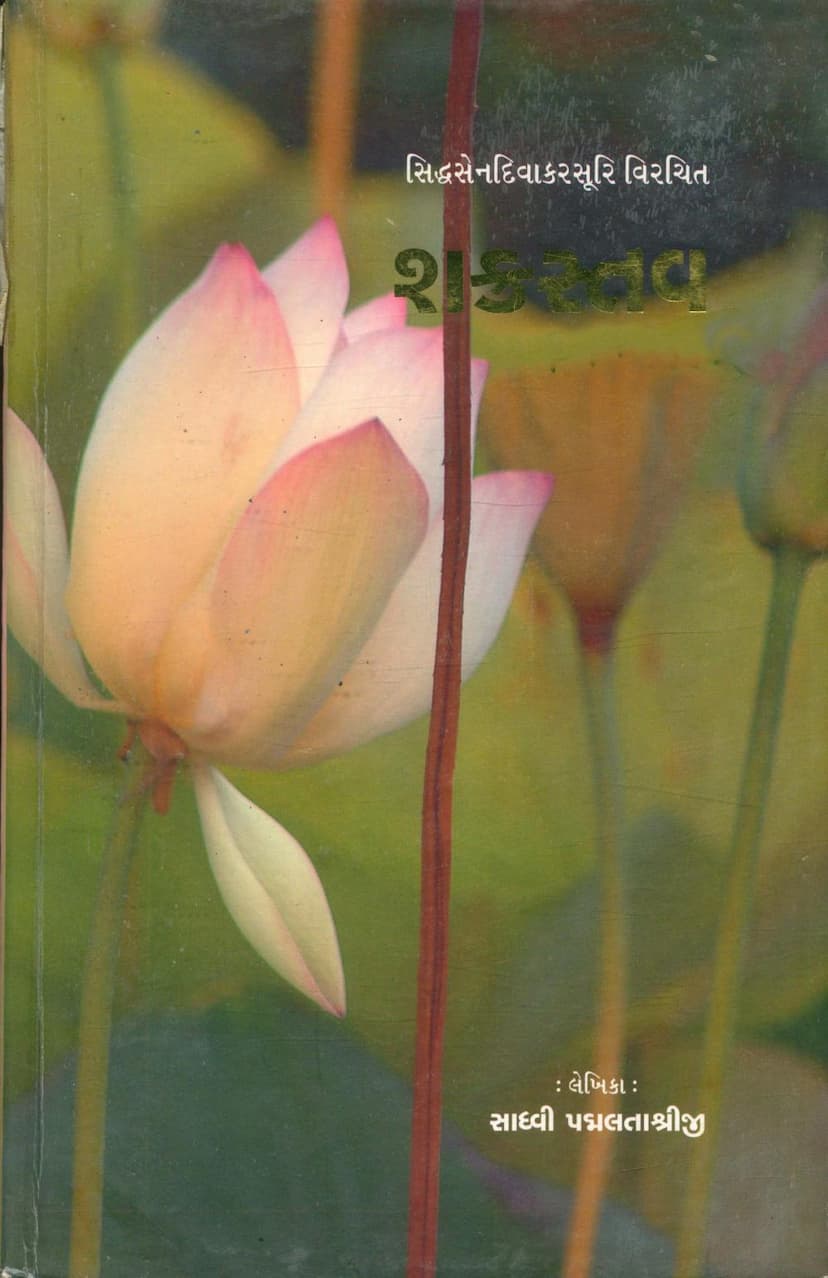Shakrastava
Added to library: September 2, 2025
Loading image...

Summary
This document is a Jain religious text titled "Shakrastava" (શક્રસ્તવ) written by Sadhvi Padmalatashreeji (સાધ્વી પઘલતાશ્રીજી). The publisher is Premilaben Jayantilal Shah family (પ્રેમિલાબેન જયંતીલાલ શાહ પરિવાર).
Here's a comprehensive summary of the content:
1. Author and Publisher:
- The book is authored by Sadhvi Padmalatashreeji.
- It is published by the Premilaben Jayantilal Shah family, indicating it's likely a dedication or a philanthropic effort by the family.
2. Content and Theme:
- "Shakrastava" is a hymn or praise (stava) dedicated to the Tirthankaras, particularly Lord Mahavir (Lord Vardhman).
- The text emphasizes the Shakrastava, a significant Jain hymn composed by Acharya Shridhar Dikarat Suriji (આચાર્ય શ્રી સિદ્ધસેન દિવાકરસૂરિજી).
- The book delves into the philosophical and spiritual profundities of the Shakrastava, explaining its various verses and their meanings.
- It highlights the importance of devotion (bhakti) as a path to liberation (moksha) and describes the Shakrastava as a "shortcut" or an easy path to spiritual attainment.
- The text repeatedly uses praiseful epithets and attributes to describe the Tirthankaras, portraying them as the ultimate reality, the source of all knowledge, power, and bliss.
3. Key Concepts and Teachings:
- Jain Philosophy: The book aligns with core Jain principles, including:
- Anekantavada (many-sidedness of reality): While not explicitly detailed in this summary, the extensive list of epithets suggests an exploration of reality from multiple perspectives.
- Vitaragata (non-attachment): The emphasis on detachment from worldly desires and the pursuit of spiritual liberation is evident.
- Self-realization: The ultimate goal is the realization of one's true self, the soul, and achieving liberation.
- The Three Jewels (Triratna): Right Faith, Right Knowledge, and Right Conduct are implicitly endorsed as the path to liberation.
- The Nature of the Soul: The text describes the soul (Atma) as the ultimate reality, pure, eternal, and inherently blissful. It likens the soul to pure consciousness, a source of infinite knowledge, power, and bliss.
- The Tirthankaras: They are portrayed as embodiments of perfect spiritual attainment, acting as guides and exemplars for humanity. Their epithets highlight their omniscient nature, their role in establishing the Jain path, and their compassionate guidance.
- Devotion and Surrender: The book advocates for deep devotion and complete surrender to the Tirthankaras as a means to overcome obstacles and attain spiritual heights.
- The Power of the Shakrastava: The text strongly suggests that reciting, studying, and contemplating the Shakrastava has immense spiritual benefits, leading to the eradication of sins, attainment of virtues, spiritual powers, worldly prosperity, and ultimately, liberation.
4. Structure and Style:
- The book is structured around the verses of the Shakrastava, with detailed explanations and interpretations provided by Sadhvi Padmalatashreeji.
- The language used is Gujarati, often employing devotional and philosophical terminology.
- The author's commentary aims to make the profound spiritual messages of the Shakrastava accessible to a wider audience.
- The text includes numerous descriptive epithets for the Tirthankaras, such as "Paramjyoti" (Supreme Light), "Paramatma" (Supreme Soul), "Paramkarunik" (Supreme Compassionate), "Niranjan" (Spotless), "Mahavira" (Great Hero), and many more, painting a multifaceted picture of their divine nature.
5. Significance:
- The book serves as a commentary and elaboration on a highly revered Jain text, making its teachings more understandable and impactful for devotees.
- It highlights the integral role of hymns and devotional practices in the Jain path to spiritual progress.
- The work is presented as a valuable contribution to Jain literature, aiming to guide spiritual seekers towards self-realization and liberation.
In essence, "Shakrastava" by Sadhvi Padmalatashreeji is a devotional exposition of a significant Jain hymn, aiming to elucidate the spiritual wisdom contained within it and guide readers towards devotion, detachment, and the ultimate realization of the soul's true nature.